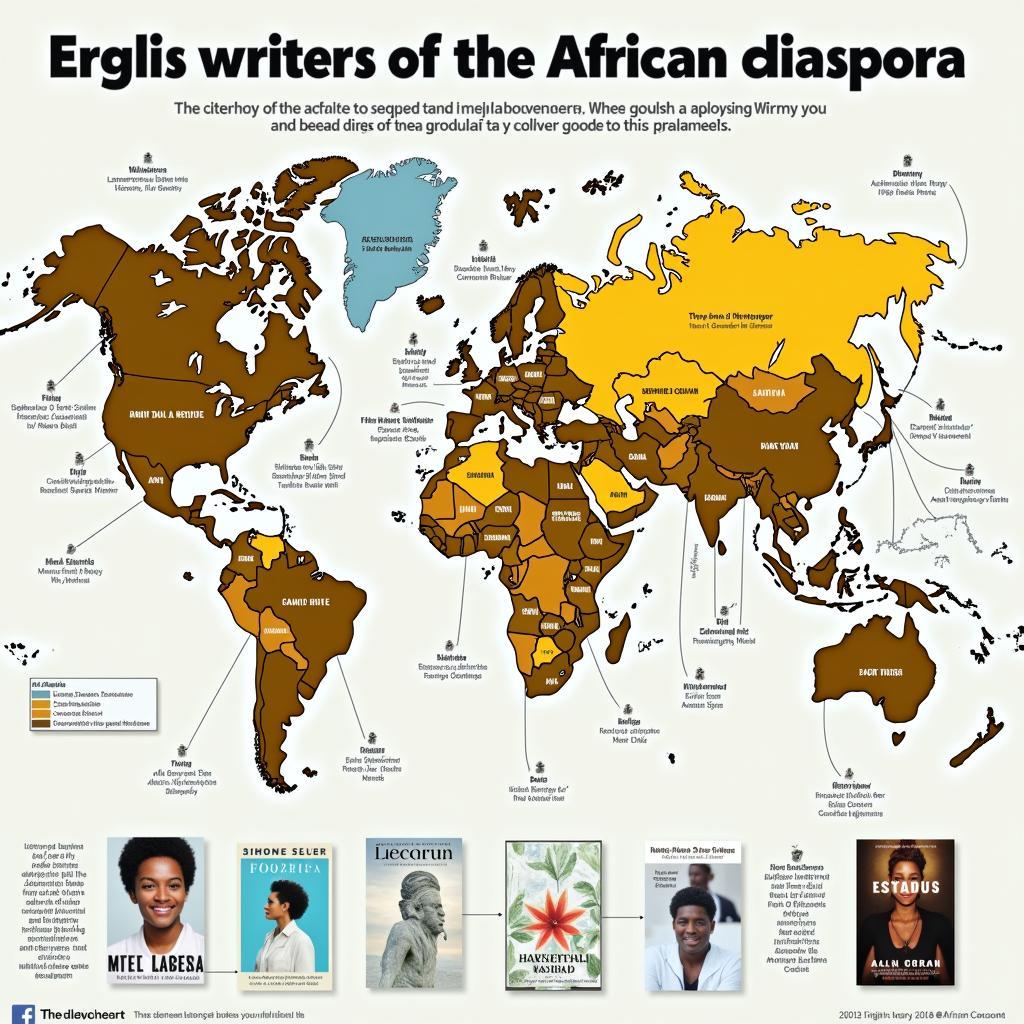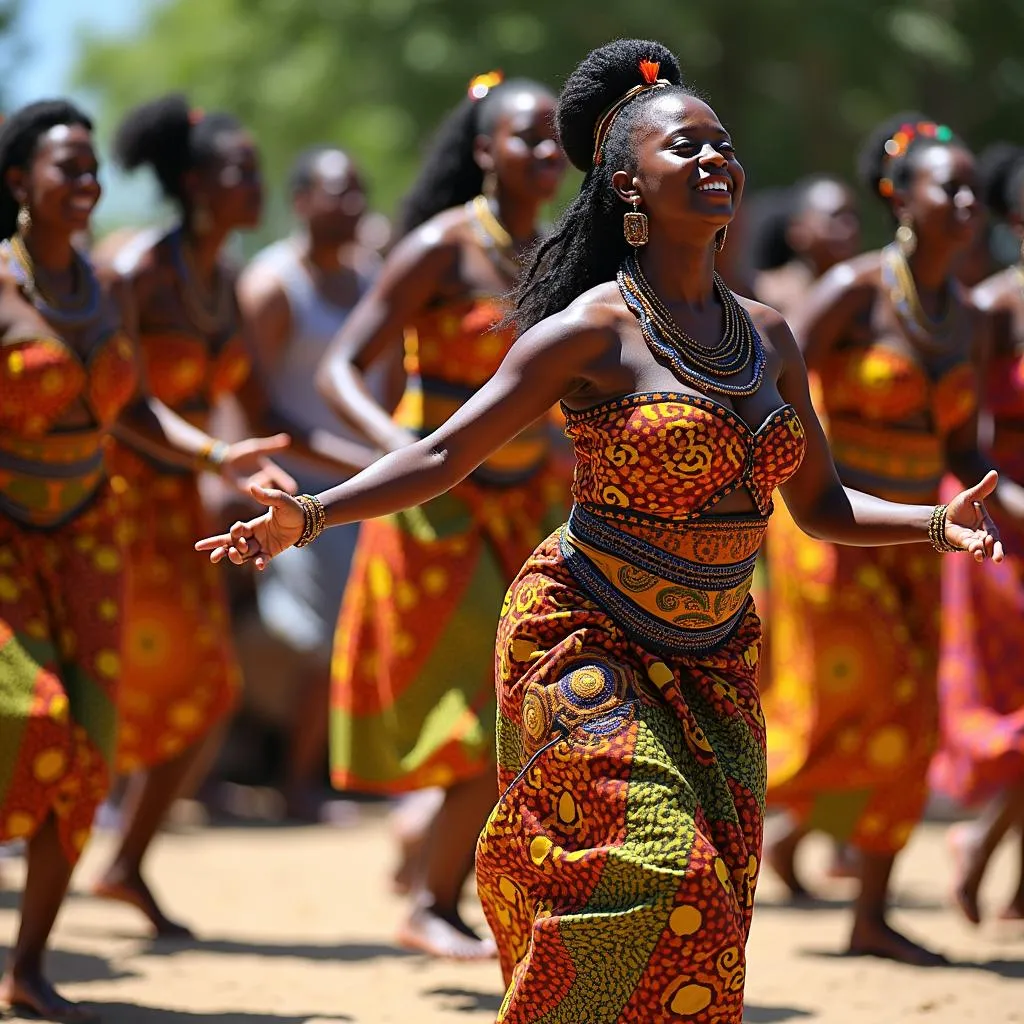Exploring African Writers in English Literature
African Writers In English Literature have made, and continue to make, significant contributions to the global literary landscape. Their works often explore themes of colonialism, post-colonial identity, cultural clashes, and the African diaspora, offering unique perspectives and enriching the world’s understanding of the African experience. From Chinua Achebe’s groundbreaking Things Fall Apart to Chimamanda Ngozi Adichie’s contemporary narratives, these writers challenge stereotypes, reclaim narratives, and give voice to the diverse tapestry of African life.
The Rise of African Voices: A Historical Overview
The emergence of African writers in English literature is intrinsically linked to the continent’s colonial history. While oral traditions have long been a cornerstone of African culture, the adoption of English as a literary language opened new avenues for expression and global reach. Early writers often grappled with the complexities of representing their cultures within a colonial framework, navigating the tensions between tradition and modernity, and asserting their own voices against dominant narratives.
The mid-20th century witnessed a flourishing of African literature, coinciding with the wave of independence movements sweeping across the continent. This period saw the rise of literary giants like Chinua Achebe, Ngugi wa Thiong’o, and Wole Soyinka, whose works became powerful tools for decolonizing the mind and reclaiming African identity. african english literature writers These writers challenged colonial perspectives, exposed the injustices of imperialism, and celebrated the richness and resilience of African cultures.
Key Themes and Literary Styles
African writers in English literature explore a diverse range of themes, reflecting the continent’s complex history and multifaceted present. Colonialism and its lasting impact, the struggle for independence, the challenges of post-colonial nation-building, and the search for identity are recurring motifs. These themes often intersect with explorations of cultural traditions, family dynamics, gender roles, and the ongoing effects of globalization.
Beyond the Stereotypes: The Power of Representation
What is the importance of accurate representation in literature? It dismantles harmful stereotypes and fosters cross-cultural understanding. African writers in English literature are crucial in providing authentic portrayals of African Life, challenging the simplistic and often negative images perpetuated by Western media.
Who are some influential African women writers?
Many influential women writers from Africa have shaped English literature, such as Chimamanda Ngozi Adichie, Buchi Emecheta, and Ama Ata Aidoo. Their works often explore the complexities of womanhood, navigating societal expectations, challenging patriarchal structures, and celebrating female resilience. These narratives offer invaluable insights into the lives and experiences of African women, broadening the scope of African literature and enriching global feminist discourse. african american cultural &
Dr. Abimbola Adebayo, a renowned scholar of African literature, notes: “African women writers are not just telling their own stories; they are reshaping the narrative of Africa itself, bringing to the forefront experiences and perspectives that have long been marginalized.”
The African Diaspora: Expanding the Literary Landscape
african diasporic writers in english literature The African diaspora has also played a significant role in shaping English literature. Writers of African descent living in other parts of the world, particularly in the Americas and Europe, have contributed unique perspectives to the literary canon. Their works often explore themes of displacement, identity, belonging, and the complexities of navigating multiple cultural influences.
 African Diaspora's Literary Contributions
African Diaspora's Literary Contributions
Professor Kwame Asante, a specialist in diaspora studies, observes: “The literature of the African diaspora offers a powerful lens through which to understand the enduring legacies of slavery, colonialism, and migration, while also celebrating the resilience, creativity, and cultural hybridity of African communities worldwide.” african american literature timeline
Conclusion
African writers in English literature have made an indelible mark on the world stage, enriching global literature with their diverse voices and perspectives. From exploring the complexities of colonialism to celebrating the richness of African cultures, these writers continue to challenge stereotypes, reclaim narratives, and inspire new generations of readers. african american cultural background Their contributions are vital to understanding the African experience and fostering a more inclusive and nuanced global literary landscape.
FAQ
- Who is considered the father of African literature? Chinua Achebe is often referred to as the father of modern African literature.
- What are some common themes in African literature? Common themes include colonialism, post-colonial identity, cultural clashes, and the African diaspora.
- What is the significance of oral tradition in African literature? Oral tradition has heavily influenced many written works, preserving cultural stories and historical narratives.
- How has African literature evolved over time? From early colonial writings to contemporary narratives, African literature has evolved to reflect changing social and political landscapes.
- Where can I find more resources on African literature? Libraries, universities, and online literary platforms offer a wealth of resources.
When you need assistance, please contact us by Phone: +255768904061, Email: kaka.mag@gmail.com or visit our address: Mbarali DC Mawindi, Kangaga, Tanzania. We have a 24/7 customer service team.




